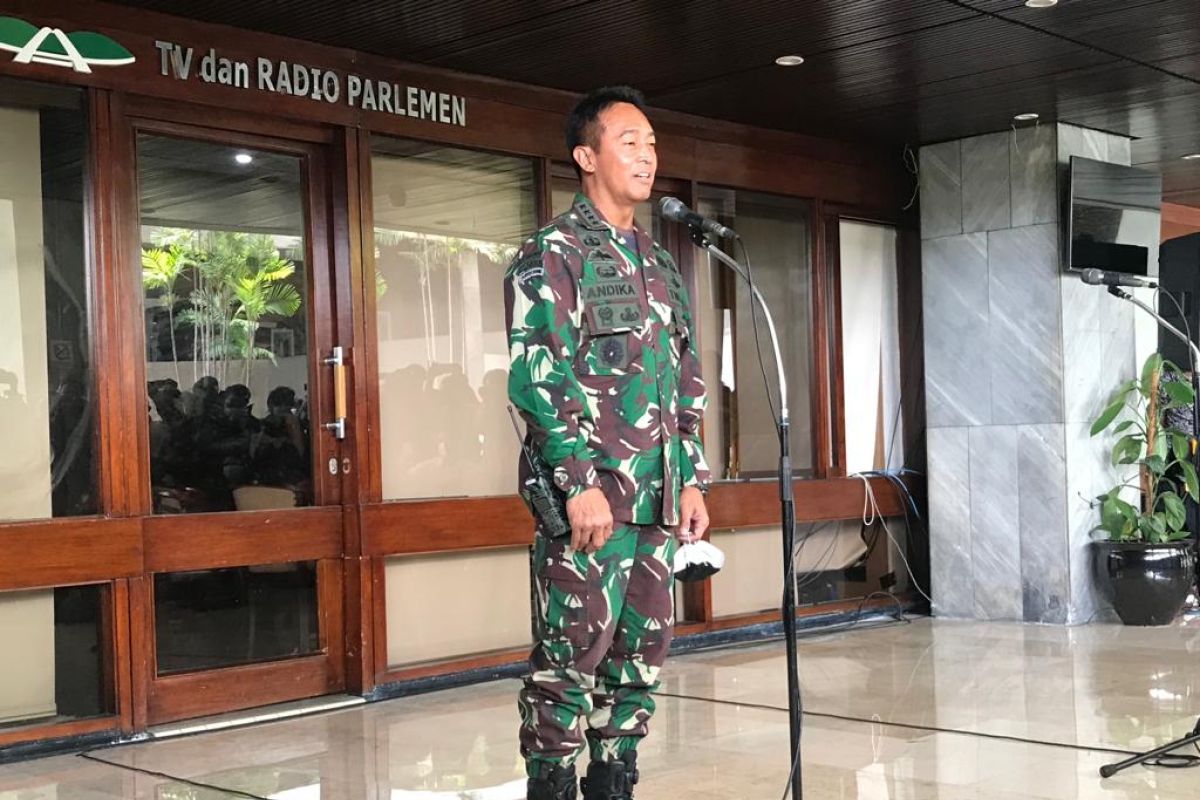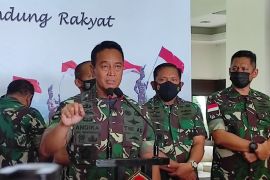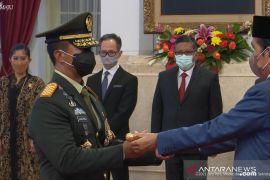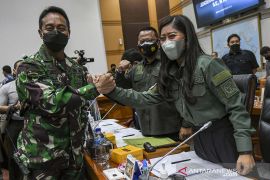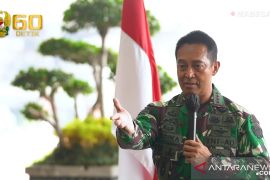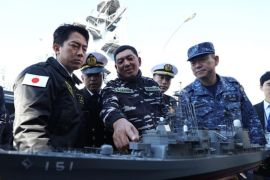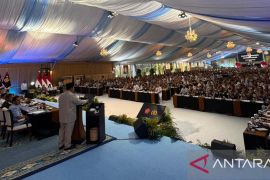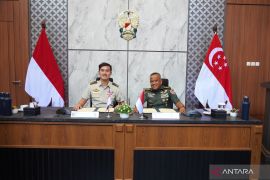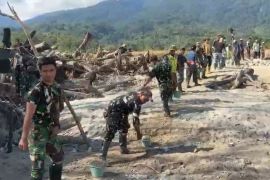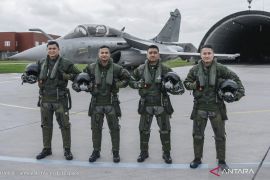Before being nominated by President Joko Widodo as a candidate for the TNI Commander's post to replace Air Chief Marshal Hadi Tjahjanto, who has reached the retirement age of 58, on November 8, 2021, Andika Perkasa served as the Army Chief of Staff.
Following the House's approval, according to State Secretary's Special Staff for Communication and Media, Faldo Maldini, General Perkasa would be officially sworn in as the TNI Commander before the end of November 2021.
His appointment as the TNI Commander has come amid ongoing security challenges in Papua and West Papua and an uneasy geo-strategic environment for Indonesia.
Related news: House Commission I approves General Perkasa's candidacy as TNI chief
It is worth noting that Papua has borne witness to a spate of violence against civilians and security personnel in the past few years.
Papuan separatist terrorists operating in certain areas in the two eastern provinces have continued to pose a security threat in the aftermath of the mass killing of construction workers on December 2, 2018.
On that day, several armed Papuan rebels brutally killed 31 workers from PT Istaka Karya, who were engaged in the construction of the Trans Papua project in Kali Yigi and Kali Aurak in Yigi sub-district, Nduga district.
The same day, the armed attackers also killed a soldier, identified as Handoko, and injured two other security personnel, Sugeng and Wahyu.
Such acts of violence have continued this year.
On April 25, 2021, Papuan separatists, operating in Beoga, ambushed State Intelligence Agency (Papua) chief I Gusti Putu Danny Karya Nugraha and several security personnel during their visit to Dambet village.
Nugraha died of gunshot wounds. On November 7, 2021, or a day after the House's Commission I overseeing foreign affairs and defence, approved General Perkasa's candidacy, two soldiers were shot by Papuan separatist terrorists.
The two soldiers survived with gunshot wounds after the separatist terrorists ambushed them in Sugapa sub-district, Intan Jaya district.
Papua's cycle of violence is just a part of challenges the TNI is facing currently. The uneasy geo-strategic environment has also demanded an urgent arms modernization and capability improvement for TNI.
Related news: Challenges await General Perkasa in Papua
In the past few months, the Asia-Pacific region has seen deepening military activity and competition involving regional and extra-regional powers.
Tensions over Taiwan, notably with the large incursions into Taiwanese Air Defense Identification Zone (ADIZ) by China's PLAAF in October, have raised concerns of possible miscalculations that can potentially lead to an armed conflict (Reuters, October 2021).
Major naval exercises involving the United States (US) and its allies in the Pacific, including the deployment of a United Kingdom (UK) carrier strike group for the first time in more than a decade, signal greater military attention to the Pacific region, both from regional and extra-regional powers.
This has been followed by the announcement of a new military alliance dubbed AUKUS between the US, the UK, and Australia, which has paved the way for Australia's acquisition of nuclear powered submarines. It has invited unease from regional countries like Indonesia, and further increased fears of an arms race.
The ongoing territorial disputes in the South China Sea also present a potential flashpoint for further conflict.
While Indonesia is not a claimant in the dispute, China's unilateral 9 dash line claim can potentially affect Indonesia's exclusive economic zone (EEZ) in the Natuna Sea (Nikkei Asia, June 2020).
This has resulted in incursions by Chinese fishing as well as research and coast guard vessels, the most recent case being the seven-week long incursion by the survey vessel Haiyang Dizhi (Asia Times, October 2021).
Related news: Be wary of Chinese warships entering Indonesian waters: MP
In the backdrop of increased regional tensions, as well as persistent incursions into Indonesia's EEZ near the Natuna Islands, it is evident that modernization and improvement of TNI's capability will be an important task that must be continued by General Perkasa as the new Chief of the Armed Forces.
The geographic condition of Indonesia and the wider Asia-Pacific region, which is dominated by the sea, necessitates increased interoperability between the land, sea, and air services of the armed forces.
Improving this interoperability will increase TNI's capability in responding to potential threats, especially in flashpoints like the South China Sea.
Increased competition in the cyber domain is also one area that must not be overlooked by planners in the TNI.
In the past decade, increased activity in this domain has led to several high profile cases of cyber espionage and cyber-attacks, such as the alleged data theft from the US F-35 fighter jet program by Chinese hackers (The Diplomat, January 2015) as well as interference in the 2016 US Presidential Election by the Russian intelligence agency (Time, April 2019).
Cases of cyber espionage and intrusions have also been reported in Indonesia, with the most recent data from the National Cyber and Crypto Agency (BSSN) showing over 800 million cases of cyber-attacks between January-August 2021 (CNN Indonesia, September 2021).
Increasing capacity and capability in the cyber domain will be an important task for the new chief of the Armed Forces. The need for this will become more evident as TNI develops its network centric warfare capability.
Integrated command, control, communications, as well as surveillance and intelligence, which will increasingly leverage the cyber domain, must be made secure against possible intrusions and attacks.
Past experiences of other nations have highlighted the high damage that cyber-attacks can inflict upon nations.
Related news: President Jokowi stresses need to stay alert for cyber attack
Related news: Indonesian Cyber Agency to curb rampant cyber attacks
*Rahmad Nasution is an ANTARA journalist
**Muhammad Teguh Ariffaiz Nasution is a graduate of the University of Indonesia's international relations department.
The views and opinions expressed on this page are those of the authors and do not necessarily reflect the official policy or position of ANTARA News Agency.
Copyright © ANTARA 2021
